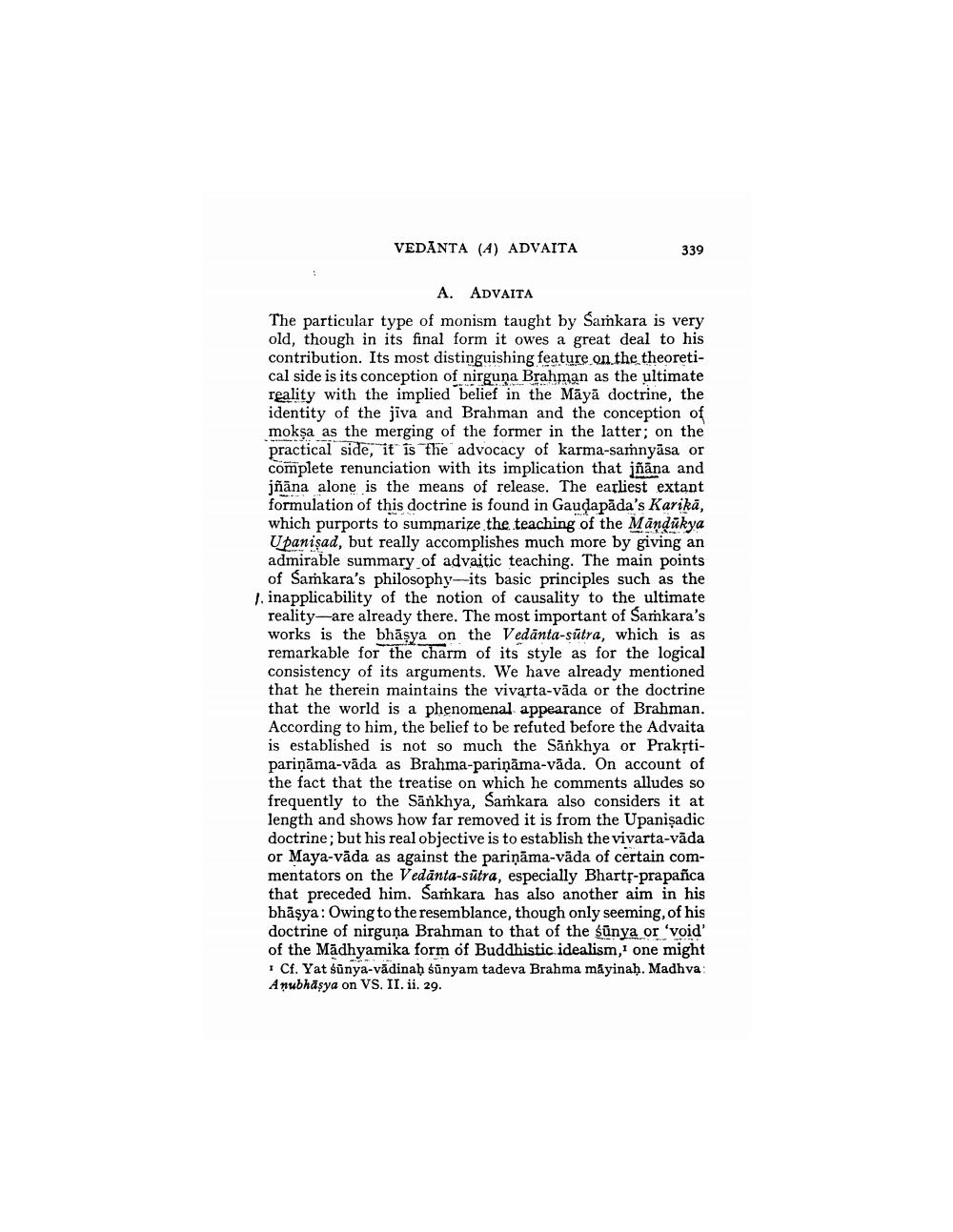________________
VEDANTA (A) ADVAITA
339
A. ADVAITA The particular type of monism taught by Samkara is very old, though in its final form it owes a great deal to his contribution. Its most distinguishing feature on the theoretical side is its conception of nirguna Brahman as the ultimate reality with the implied belief in the Māyā doctrine, the identity of the jiva and Brahman and the conception of moksa as the merging of the former in the latter; on the practical side, it is the advocacy of karma-samnyāsa or complete renunciation with its implication that jñāna and jñāna alone is the means of release. The earliest extant formulation of this doctrine is found in Gaudapāda's Karika, which purports to summarize the teaching of the Māndükya Upanişad, but really accomplishes much more by giving an admirable summary of advaitic teaching. The main points
of Saṁkara's philosophy-its basic principles such as the J. inapplicability of the notion of causality to the ultimate
reality-are already there. The most important of Samkara's works is the bhāşya on the Vedānta-sūtra, which is as remarkable for the charm of its style as for the logical consistency of its arguments. We have already mentioned that he therein maintains the vivarta-vāda or the doctrine that the world is a phenomenal appearance of Brahman. According to him, the belief to be refuted before the Advaita is established is not so much the Sankhya or Prakstipariņāma-vāda as Brahma-pariņāma-vāda. On account of the fact that the treatise on which he comments alludes so frequently to the Sankhya, Samkara also considers it at length and shows how far removed it is from the Upanişadic doctrine; but his real objective is to establish the vivarta-vāda or Maya-vāda as against the pariņāma-väda of certain commentators on the Vedānta-sútra, especially Bhartr-prapañca that preceded him. Samkara has also another aim in his bhāşya: Owing to the resemblance, though only seeming, of his doctrine of nirguna Brahman to that of the sūnya or 'void' of the Madhyamika form of Buddhistic idealism, one might
Cf. Yat sūnya-vădinah sūnyam tadeva Brahma māyinah. Madhva Anubhāsya on VS. II. ii. 29.




